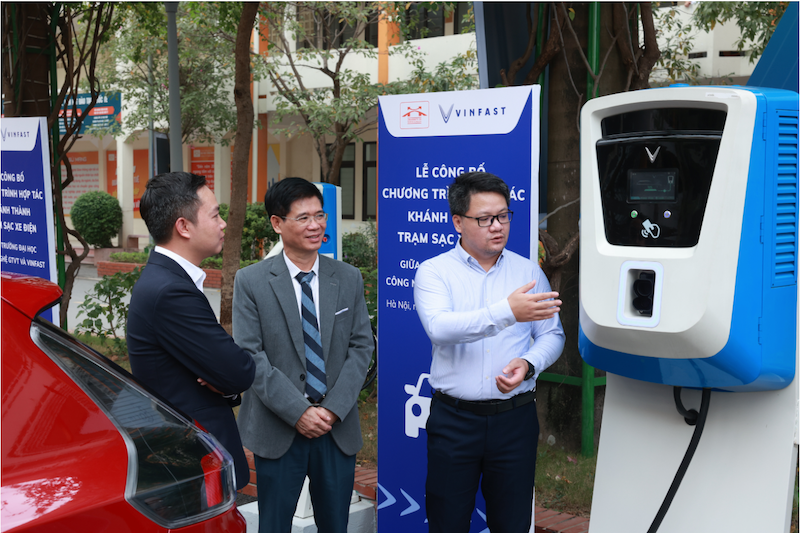The Hanoi-based University of Transport Technology is one of the first public educational institutions to install EV charging stations, catching up with the trend of electrification in mobility in Vietnam.
|
| The opening launch of the EV charging station. Photo: VinFast |
It was announced at the signing ceremony of the cooperation program between the University of Transport Technology and VinFast and the launch of the VinFast EV charging station at the university on November 14.
At the event, Vice-Rector of the University of Transport Technology Nguyen Manh Hung said that a green traffic "symbol" on campus is not only meaningful in expanding the EV infrastructure in the capital city.
“This is a good opportunity for the faculty, staff, and students to access and use the world's advanced technological facilities on site, thereby promoting research and application of eco-friendly technology to Vietnam’s traffic system,” he emphasized.
He added that the educational institution hopes to become a model of actively adapting and embracing the world's advanced technologies.
This charging station is planned to include five charging ports with a capacity of 30kW each and another five with a capacity of 11kW each according to European standards such as waterproofing, ensuring maximum safety in terms of power supply, and fire and explosion prevention, leakage current.
The cooperation between VinFast and the University of Transport Technology is part of the Vietnamese automaker's national strategy of expanding the network of charging stations. It is also a premise for the firm to create a comprehensive EV ecosystem.
Recently, other local organizations and companies, including PVOil and Petrolimex, have cooperated with the Vietnamese EV manufacturer to provide charging station facilities.
The company targets installing 150,000 charging ports nationwide in 63 provinces and cities in 2022.










